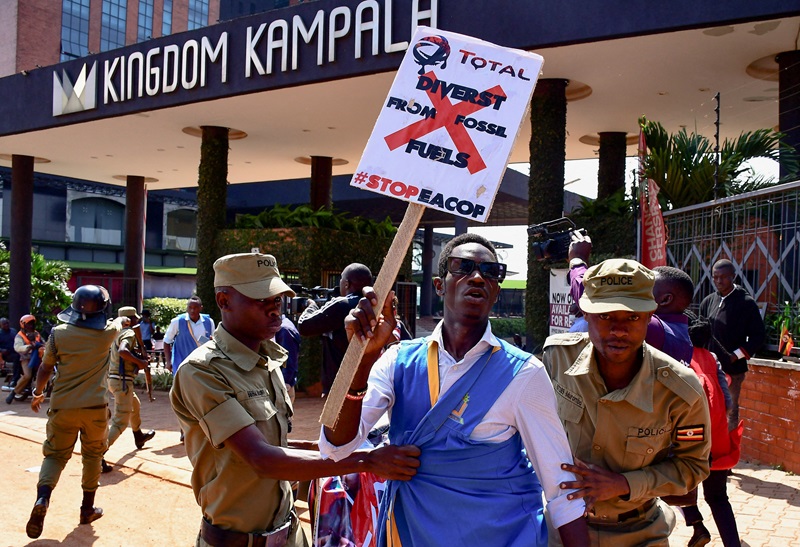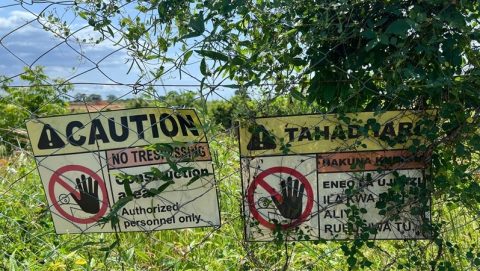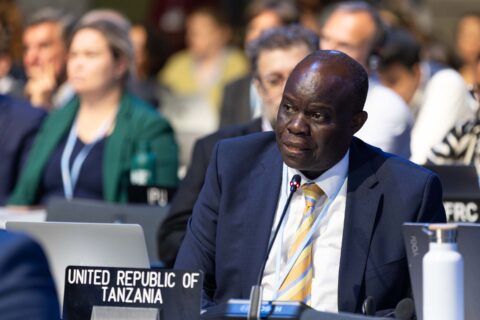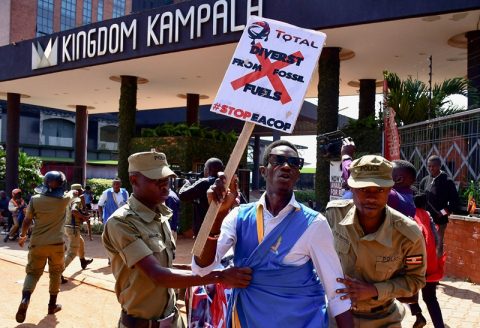After Hurricane Melissa devastated Jamaica this week on its way across the Caribbean, expert analysis suggests the island nation is in line for hundreds of millions of dollars in payouts from innovative forms of insurance policies like catastrophe bonds to help it recover.
Jamaica’s finance minister Fayval Williams said in June that the country had disaster financing coverage worth 130.6 billion Jamaican dollars (US$820 million). The country has insurance with the Caribbean Catastrophe Risk Insurance Facility (CCRIF) and a $150-million catastrophe bond, which experts say is likely to pay out in full.
Finance and climate researchers praised the Jamaican government’s foresight in arranging cover, which is likely to bring much-needed and relatively fast funds to help the country cope and rebuild. Sara Ahmed, advisor to the Climate Vulnerable Forum, commended Jamaica for “its leadership in deploying a mix of risk financing tools as climate change intensifies tropical storms and hurricanes”.
The executive director of the UN’s Green Climate Fund (GCF) Mafalda Duarte told Climate Home News on Thursday that, while the GCF currently has limited involvement in insurance, it is exploring more such investments. “A lot more needs to be done in this area,” she said.
But, while praising Jamaica’s government, other climate and finance analysts warned that the scale of the payouts is unlikely to come close to covering the losses from the hurricane and argued it is an injustice that small-island taxpayers who contributed little to the climate crisis are the ones who pay the insurance premiums – which are now likely to rise after this week’s disaster.
Catastrophe bonds
Catastrophe bonds originated in the US in the 1990s as a way to get investors – rather than insurance companies – to cover the risk of events like hurricanes and earthquakes deemed rare but severe. The World Bank has since promoted their roll-out to developing countries like Jamaica.
Earlier this year, finance minister Williams told Bloomberg: “We are situated in the hurricane belt and when the hurricane hits us, it can hit us very hard and damage roads, infrastructure – it takes us out for a while.”
She said Jamaica had issued catastrophe bonds because “the day the [meteorological] office tells us that a very severe hurricane is on the way towards us – it’s too late to do the planning; so you plan well ahead of the eventuality of that catastrophe.”
The scale of the economic damage from Hurricane Melissa is still unclear but is likely to run into tens of billions of dollars, according to preliminary estimates. Pepukaye Bardouille, special adviser on resilience to the government of Barbados, told a press briefing on Friday that a $150-million payout was a “drop in the ocean” but useful as part of a stack of solutions.
Connor Meenan, a disaster risk specialist from the UK-based Centre for Disaster Protection, told Climate Home News that “the real value” of insurance is that “on day one, they’ve got certainty about a significant amount of money that they can call on in the near term so they can focus on directing that where it needs to be spent”.
“It’s certainly put them in a better position than it would have been had they not made all these efforts to put their finances in place ahead of time,” he said.
Unsustainable and unfair?
Ritu Bharadwaj, IIED’s director of climate resilience and loss and damage, warned that as the Earth’s climate heats up and catastrophes become more frequent, investors become less willing to bet against them happening, demanding higher premiums to do so. “It will become uninvestable,” she said.
Critics also raised climate justice concerns. Jamaica is in line for payouts because its government has been paying insurance premiums, which have to be large enough to entice investors to take on the risk of a disastrous hurricane occurring. Many countries whose governments are paying catastrophe bond premiums do not suffer catastrophes and so lose their money.
Bharadwaj said it was “unfair” that taxpayers in countries like Jamaica are having to pay to insure against climate disasters they only played a small part in creating. Jamaica’s per-person emissions are about half the world average.
Conditions on when bonds pay out can also be strict, based on triggers like agreed wind speeds and central air pressure, with exact criteria varying in different parts of a country depending on historic precedents.
Last year, Jamaica missed out on a payment because, despite Hurricane Beryl causing about $1 billion of damage to the island, these triggers were not met.
Fending for themselves
Bharadwaj added that financial support from wealthy countries – like that in the UN’s new Fund for Responding to Loss and Damage (FRLD) – is insufficient to meet countries’ needs. The FRLD has $407 million in its bank account, which she said is likely far less than the losses suffered by Jamaica, let alone all the other countries in need of funding after climate-driven disasters.
Because of this “failure” of developed countries, multilateral development banks and the private sector to offer adequate funding, developing countries have to “fend for themselves”, she said.
As well as catastrophe bonds, she said governments should issue bonds – as Fiji has done – to raise money to invest in resilience measures. This can include dedicated resilience projects like flood defences and sea walls or making infrastructure like coastal hotels in Jamaica better able to withstand extreme weather, she said.
This spending, she said, should be seen as “not just doing good, not just impact investing [but] an investment that will yield benefit in the future” by preventing loss and damage.
Avinash Persaud, climate adviser to the president of the Inter-American Development Bank, argued in a recent article for Climate Home News that developing countries should have some of their debt written off if they invest in resilience.
Persaud’s native Barbados launched the world’s first of these debt-for-resilience swaps last year and a “multi-guarantor debt for resilience facility” is expected to be launched by international development banks at COP30 this month to make such swaps available to more countries.
Persaud and Bardouille have also argued for more lenders to introduce clauses saying that debt repayments will be paused when a disaster like a hurricane strikes.
The post Jamaica set for post-Melissa payout but experts warn of limits to hurricane insurance appeared first on Climate Home News.
Jamaica set for post-Melissa payout but experts warn of limits to hurricane insurance
Climate Change
Uganda may see lower oil revenues than expected as costs rise and demand falls
Uganda’s plan to use future revenues from its emerging oil industry to drive economic development may not work as expected, because evidence so far shows that the government’s effort to extract and export its crude oil may not produce the returns it is counting on, analysts have warned.
A new report by the Institute for Energy Economics and Financial Analysis (IEEFA) found that Uganda stands to benefit far less from oil production than previously projected, with revenues set to be half of earlier estimates if the world transitions away from fossil fuels on a path to reaching net zero emissions.
Uganda’s oil ambitions involve developing two oilfields on the shores of Lake Albert – Tilenga and Kingfisher – and constructing the 1,443-km East African Crude Oil Pipeline (EACOP), with the aim of transporting 230,000 barrels of crude per day to Tanzania’s Tanga port for export.
Gas flaring soars in Niger Delta post-Shell, afflicting communities
Led by oil major TotalEnergies and China National Offshore Oil Company (CNOOC), alongside the Uganda National Oil Company (UNOC) and Tanzania Petroleum Development Corporation, the project was given the financial go-ahead in 2022.
Will Scargill, one of the IEEFA report’s authors, told an online launch this week that oil may have seemed a historically attractive option for Uganda but the benefits it could yield are very sensitive to major risks, including cost overruns around the project and in the refining sector, which it also plans to enter.
“The EACOP project is expected to cost much more than the original expectations, so it’s a major project risk in Uganda as well,” he said.
The start of oil production and exports through the East Africa pipeline had been expected by 2025 – nearly 20 years after commercially viable oil was first discovered in the country – but has now been delayed until late 2026 or 2027.
Meanwhile, the cost of construction – particularly for the EACOP part of the project – has continued to rise, reaching around $5.6 billion, a 55% increase from the $3.6 billion projected shortly before it got financial approval, the report said.

US tariffs, China’s EV boom to curb oil revenues
Beyond delays and cost overruns, “there’s the risk the impact of the accelerating shift away from fossil fuels will have on the oil market,” Scargill said.
The report said the most significant factors for the Ugandan oil industry – which are beyond its control – have been the reduced outlook for international trade spurred by recently imposed US tariffs and the growing uptake of electric vehicles (EVs), particularly in China – which has led to a peak in transport fuel demand and an expected peak in overall oil consumption by 2027.
The 2025 oil outlook from the International Energy Agency (IEA) shows that growth in global oil demand will fall significantly by the end of the decade before entering a decline, driven mainly by electrification in transport which will displace 5.4 million barrels per day of global oil demand by the end of the decade.
In addition, structural changes in global energy markets, including oil supply growth outside the OPEC+ bloc – a group of major oil-producing countries including Saudi Arabia and Russia that sets production quotas – particularly in the US, Brazil and Guyana, are lowering prices.
“It’s a particularly bad time to be taking single big bets on particular sectors that are linked to external markets,” said Matthew Huxham, a co-author of the IEEFA report.
To make matters worse, Uganda’s public finances have been weakened in the past decade by external shocks including higher US interest rates and commodity prices, resulting in downgrades of the country’s sovereign credit rating, he added.
“What that means is, generally speaking, there is less fiscal resilience to shocks,” Huxham said.
Lower global demand for oil would likely see lower prices, profits and revenues for the Ugandan government, the report authors said. In addition, a global shift to renewable energy would mean Uganda selling even fewer barrels into international markets.
All of these factors suggest that investment in Uganda’s oil industry “would unlikely be as transformational as expected” for its development, Scargill said.
Climate Home News reached out to the Uganda National Oil Company and EACOP but had not received a response at the time of publication.
Foreign investors to recover costs while Uganda faces risks
Uganda has invested a significant amount of government funds not only in the oil pipeline but also in supporting infrastructure such as a planned refinery. The report authors raised concerns about revenue-sharing agreements under which foreign investors are entitled to recover their costs first, taking a larger share of oil revenues in the early years of production.
IEEFA estimates that while TotalEnergies’ and CNOOC’s returns could fall by 25-34% as the world uses less oil and moves from fossil fuels to clean energy, Uganda’s expected revenues could decline by up to 53%.
Explainer: What is the petrodollar and why is it under pressure?
Uganda is pursuing a $4.5-billion oil refinery project in Hoima District, with the country’s oil company UNOC due to take a 40% stake. To finance part of this investment and other oil-related infrastructure, UNOC has secured a loan facility of up to $2 billion from commodity trader Vitol.
Under the deal, Vitol gains priority access to oil revenues, placing it ahead of the Ugandan government when money starts flowing in, the report said. The IEEFA analysts warn that this will likely displace or defer planned use of the revenues for other government spending on things like health, education and climate adaptation, especially if oil production and the refinery construction are delayed or profits disappoint.
“Even if the refinery project is on time and on budget, the refinery and loan repayments could consume 40% of Uganda’s oil revenues through 2032,” Scargill noted.
Pointing to recent cost overruns at oil refinery projects in Africa, the report authors said Nigeria’s
Dangote refinery ended up costing more than twice the original estimate – jumping from $9 billion to over $18 billion.
Climate action is “weapon” for security in unstable world, UN climate chief says
They said analysis shows the Uganda refinery will cost 25% more than planned, on top of an expected overrun of over 50% on the EACOP project, cutting the annual return rate to 10%.
“This means there is a high chance the project, by itself, will not make any money,” the report added.
Responding to the report, the StopEACOP coalition said the analysis confirms that beyond causing ongoing environmental harm and displacing hundreds of thousands, the project “does not make economic sense, especially for the host countries”.
They called on financial institutions, including Standard Bank, KCB Uganda, Stanbic Uganda, Afreximbank, and the Islamic Corporation for the Development of the Private Sector, which are backing the “controversial” EACOP project, “to seriously engage with the findings of the IEEFA reports and reconsider their support”.
Prioritise climate-resilient investments instead
In another report released alongside the one on oil project finances, IEEFA argued that Uganda could achieve stronger and more effective development outcomes by redirecting its scarce public resources towards climate-resilient, electrified industrialisation rather than doubling down on oil.
Uganda is among the countries most vulnerable to climate change, yet ranks low in readiness to cope with its impacts. The report authors urged the government to apply stricter criteria when deciding how to spend public funds, focusing on things like improving access to modern energy services and climate adaptation.
The IEEFA report recommended investments in off-grid and mini-grid solar electrification, agro-processing, cold storage, crop irrigation and better roads as lower-risk alternatives to investing in fossil fuels.
Africa records fastest-ever solar growth, as installations jump in 2025
Investments that take climate risks into account could also attract concessional climate finance and align with Uganda’s fourth National Development Plan and Just Transition Framework, the report said.
“They also take less long to construct, are easy to deploy, pay back over a shorter period and they also put less pressure on the system,” Huxham added.
The post Uganda may see lower oil revenues than expected as costs rise and demand falls appeared first on Climate Home News.
Uganda may see lower oil revenues than expected as costs rise and demand falls
Climate Change
Ugandans living near new oil pipeline let down by compensation programmes
Most Ugandans whose land and livelihoods were affected by the construction of the East African Crude Oil Pipeline (EACOP) are dissatisfied with training programmes provided by developers which were designed to stop them being left worse off, a survey has found.
The Africa Institute for Energy Governance (AFIEGO) asked 246 people in seven communities affected by the project for their views on the developers Resettlement Action Plan (RAP).
It found that while most affected households have received some form of support, most were dissatisfied with the quality of food security programmes and training on alternative vocations and financial literacy.
Dickens Kamugisha, AFIEGO’s CEO, said that while the Ugandan government claims it is developing the oil sector to create lasting value for everyone, this study shows that this is not the case especially for the people that were displaced for the project.
“They lost their land, were under-compensated and now an inadequate livelihood restoration programme is being implemented. Instead of creating lasting value for the project-affected people, the government and the EACOP company could create lasting poverty for the people”, he added.
EACOP is being built by a coalition led by the French company Total, along with China’s National Offshore Oil Corporation and Uganda and Tanzania’s state-owned oil companies.
The 1,400 km pipeline will take oil from Uganda’s Tilenga and Kingfisher oil fields through Tanzania to the East African coast, where the oil can be put on ships and exported.
Inadequate training
Nearly four-in-five of those surveyed described vocational training programmes, designed to give displaced people new professions like bakers, welders and soap makers, as inadequate. They cited short training periods, absentee trainers and limited hands-on learning.
One participant said he was trained in catering for four months in 2024. “I did not understand what I was taught. We were not learning most of the time”, he said.
The young man said that he only cooked once in the four months and that trainers told them that they would be sent home if they complained.
The financial literacy programme, aimed at training people to use their compensation wisely, was also described as inadequate by nearly four-fifths.
They said the training was only one day and was conducted by a commercial bank, which pushed them to open bank accounts rather than improving their money management practices.
“They were interested in business, and not in people learning”, one woman said, “no wonder when people got money, some married more women. The compensation was also too little!”

Not enough food
Those who were physically displaced by the pipeline or who lost more than a fifth of their land to it were supposed to be entitled to food assistance for up to a year or more.
While three-quarters of respondents received some food assistance, just a third said it was adequate. They complained that they did not understand why some people were getting food and others not.
There were also complaints about the quantity of beans, rice, cooking oil and salt provided, particularly from those with big families. One woman said her family of 30 used up the 4 kg of rice and beans in one meal.
An agricultural recovery programme aimed to help people transition but, while many confirmed receiving seeds, seedlings or fertilisers, they complained that the seeds were poor quality and distributed too late – after the rains – for crops to grow.
In Kyotera District, one participant recounted receiving 70 coffee seedlings, of which only 20 survived. “We were given very young coffee seedlings. They were also poor quality with some having no roots,” the participant said. “I watered those coffee seedlings, but they did not grow. They were poor quality!”
Some of the affected communities also complained about not getting the livelihood options they wanted, adding that those who wanted livestock were given seeds instead because they did not have a building to house the livestock.
On the other hand, the survey found that about two-thirds of affected people were satisfied with the distance between their homes and the pipeline. The third who were not satisfied said they feared accidents like oil spills and noise and dust pollution as the pipeline is built.
“I fear for my life,” said one man in Hoima, “the pipeline can burst, spill and affect us. We have also been told that the pipeline will be heated. The heat from the pipeline could affect our soils”.
The post Ugandans living near new oil pipeline let down by compensation programmes appeared first on Climate Home News.
Ugandans living near new oil pipeline let down by compensation programmes
Climate Change
Virginia House Passes Data Center Tax Exemption, With Conditions
New and existing data centers could continue receiving a break on the state’s retail sales and use tax, as long as they moved away from fossil fuels and tried to reduce energy usage.
RICHMOND, Va.—The Virginia House of Delegates on Tuesday passed legislation continuing billions of dollars in state tax exemptions for all qualifying new and existing data centers as long as they take a series of steps to move away from fossil fuels and transition to renewable energy.
Virginia House Passes Data Center Tax Exemption, With Conditions
-
Climate Change6 months ago
Guest post: Why China is still building new coal – and when it might stop
-
Greenhouse Gases6 months ago
Guest post: Why China is still building new coal – and when it might stop
-
Climate Change2 years ago
Bill Discounting Climate Change in Florida’s Energy Policy Awaits DeSantis’ Approval
-

 Greenhouse Gases2 years ago
Greenhouse Gases2 years ago嘉宾来稿:满足中国增长的用电需求 光伏加储能“比新建煤电更实惠”
-
Climate Change2 years ago
Spanish-language misinformation on renewable energy spreads online, report shows
-

 Climate Change2 years ago
Climate Change2 years ago嘉宾来稿:满足中国增长的用电需求 光伏加储能“比新建煤电更实惠”
-
Climate Change Videos2 years ago
The toxic gas flares fuelling Nigeria’s climate change – BBC News
-

 Carbon Footprint2 years ago
Carbon Footprint2 years agoUS SEC’s Climate Disclosure Rules Spur Renewed Interest in Carbon Credits
















